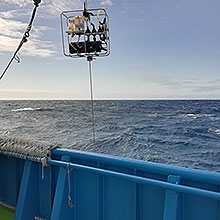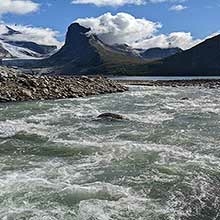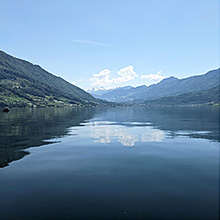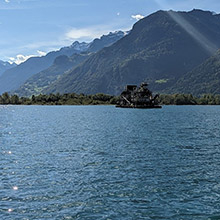Department Surface Waters - Research and Management
Aquatic Geochemistry
The research of the Aquatic Geochemistry group focuses on trace metals and their isotopes in a wide range of aquatic systems (lakes, rivers, marine settings, wetlands). As the name indicates, the concentrations of these “trace” metals (e.g. Cr, Mn, Fe, Co, Ni, Cu, Zn, Mo, Cd) can be very low in aqueous systems. However, through their roles as essential micronutrients and toxins, trace metals can influence biological productivity & the composition of biological communities, and in turn the distributions of many trace metals and their isotopes reflect biological cycling. Metal distributions are also regulated by variable responses to geochemical gradients in natural and perturbed systems (e.g. O2, pH) and reactivity with organic and mineral surfaces. Therefore, these metals are fundamentally connected to the biogeochemical cycles of more major elements (e.g. C, N, O).
The Aquatic Geochemistry group targets the distributions of trace metal and their isotopes to:
- Describe the physical and chemical speciation of metals in aqueous systems, and how this regulates metal reactivity
- Evaluate the potential for trace metals & isotopes to serve as proxies for biological productivity (i.e. the cycling of C and major nutrients) and geochemical gradients (e.g. O2 availability) in modern settings and throughout Earth’s history
- Assess nutrient cycling and the availability of essential micronutrients to biological communities
- Characterize the mobility and fate of contaminants in aquatic systems to inform remediation strategies and potential implications for biological communities
- Address the potential impacts of climate change and other natural and anthropogenic perturbations on metal availability.
This is primarily accomplished by field sampling of waters & sediments, and process studies in the lab & the field. Characterizing sources and sinks of metals, quantifying metal budgets in aquatic systems, elucidating processing driving stable isotope fractionation, and tracing interactions with biological cycling are of particular interest. We use a variety of field sampling approaches to target specific phases and spatial and temporal scales.
Our primary analytical tools are mass spectrometry (e.g. ICP-MS, MC-ICP-MS) after sample extraction and purification in the lab, with additional field-capable analytical approaches for direct on-site quantification of unstable metal forms.













